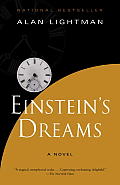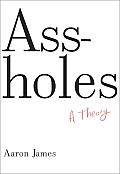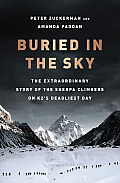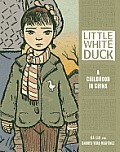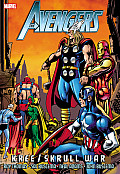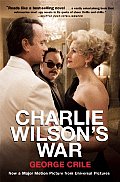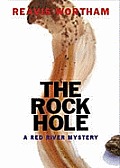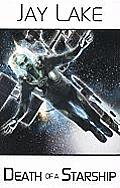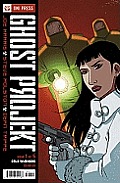Link to this review in the form of a comic strip by geneambaum tagged science fiction • historical fiction • short stories
Link to this review by flemtastic tagged nonfiction • literary
Aaron James is an Associate Professor in the Philosophy Department at the University of California, Irvine. He is troubled by the profusion of assholes in our society and believes there is a tipping point where people trying to do the right thing will see the self-entitled disregarding societal rules and choose not to play themselves. He claims Italy is already over the line and the United States’ chances are not looking good. There are ways for polite society to put assholes back in their places, but they have been largely negated by what James calls Entitlement Capitalism, where asshole-like traits are rewarded.
James puts together a step-by-step, logical argument for defining, recognizing and managing the assholes in one’s life. He lays out the balance between fighting for recognition of one’s moral superiority and giving up that fight.
Why I picked it up: The cover blurb. It says, “Don’t take this personally…” The footnote points to this statement. “Unless you happen to be Donald Trump or Kanye West or Dick Cheney, in which case you may take it personally.” I knew I was going to like this book.
Why I finished it: The book seriously discusses assholes, but never devolves into cheap humor or pointing out more than a few specific examples. At one point it even sounds like a twelve-step plan and discusses why trying to change assholes is not a good idea (they have to recognize themselves first). The author quotes Hegel, Kant, St. Augustine, and other philosophers. Eclectic topics are used to illustrate his points, like when James, an avid surfer, discusses the assholish tendencies of Brazilian surfers, who, as a group, do not consider themselves bound by normal rhythms of claiming a wave.
I’d give it to: My cubicle-dwelling friend, Jayce, who rants about the assholes in his office He could use the discussion towards the end of the book about how to keep one’s sense of dignity while not beating one’s head against an immovable wall (the asshole’s sense of entitlement and uniqueness).
Link to this review by flemtastic tagged nonfiction
In August of 2008, a record eleven climbers died in one day on the slopes of K2, the world’s most dangerous peak. As several teams of not-so-professional climbers attempted to summit during a rare, four-day window of good weather, mistakes were made that resulted in these horrifying deaths on the top of the world. (K2, while shorter than Everest, is considered much more dangerous and difficult to climb.)
Zuckerman and Padoan traveled to Nepal to cover the story from the perspective of two surviving Sherpas. They clarify the daunting job, cultural and religious expectations, and economic pressures these men face.
Why I picked it up: Ever since I was entranced by the other-world feel of John Krakauer’s Into Thin Air, I have been reading books about those who try to climb the world’s highest mountains. Aside from other people on the mountain — all of whom are struggling to simply lift one foot after another — there is no chance of anyone coming to your aid.
Why I finished it: I learned I’d been misusing the word “Sherpa” for years. Most westerners, including climbers, use the term to denote any native who helps with high-altitude climbs in the Himalayas. Sherpa is actually a nationality, and this book takes pains to uses the term correctly and explains the word’s charged history and the different groups that Westerners refer to as Sherpas. There were also Pakistani climbing guides, and a few Bhote (a low ranking caste in Tibet) on this expedition. All of these men were charged with safely guiding Western climbers to the summit and back, as well as stocking the base camps with oxygen, laptops and generators.
In addition to details about the climbers, there are examples of heroism in the face of disaster. A Bhote guide who gave up his ice axe to anchor a needed rope that a whole line of clients were clinging to during a blizzard; he knew he would die there because he could not descend without it. Reading about selfless acts like these, performed by men who well know they are going to slowly freeze to death, made me thankful I will never be in such a situation. (I’m not sure if there’s a phobia of waking to find yourself on the side of Everest or K2, but if there is, I now have it.)
I’d give it to: Mike, who, with morbid fascination, would read about the gut-reaction choices of men facing life-or-death situations. One climber turned away a stumbling, incoherent man in need of shelter, while another roped a nearly unconscious man to his body and climbed down at great risk to himself. Mike would enjoy the rationales of both men, as well as figuring out why they reacted so differently in the same situation.
Link to this review by snow tagged nonfiction • graphic novel • biography
Na Liu and her husband, illustrator Andres Vera Martinez, created this graphic novel in order to share Na Liu’s stories of growing up in China in the late 1970s. These are not the typical tales of Communist deprivation and trials which many readers will be expecting. Instead Liu focuses on little memories of happy times planning for New Year’s celebrations, funny stories of trying — and failing — to be helpful, hard-learned lessons about family, and the like.
Educators will appreciate the extras: a glossary, a timeline, a map, and more. Kids and young teens who just want a fun read will enjoy this brief visit to a unique — and yet familiar — childhood.
Why I picked it up: In the past year or so, I’ve been really pleased with Lerner’s Graphic Universe imprint. They’ve gone from focusing on educational titles and the school market to including high-quality graphic novels and just plain entertaining, enjoyable reads.
Why I finished it: Liu doesn’t try to tell the complete story of her childhood. She focuses on small events: the fear and confusion of seeing all of the adults around her weeping for the death of Chairman Mao, learning not to waste food, and going to visit relatives in the country. All of her stories are brought to vivid life by her husband’s richly-hued, detailed illustrations. Martinez’s work captures not only the humor of Liu’s stories — like the stricken look on Lui’s face after meeting her rough-and-tumble cousins — but also the fantastical enjoyment of her time as a happy child. The first page ends “I think my life in China was pretty ordinary…” and the next page features Liu and her little sister flying over Wuhan on the back of a golden crane, a beautiful representation of their family’s yearly visit to the Yellow Crane Tower and the dreams Liu would have afterward.
I’d give it to: Zhanna, who doesn’t talk much about her childhood in Siberia. I hope Liu’s mostly happy memories will inspire her to tell me some stories of what her life was like before the Iron Curtain fell.
Link to this review by billba tagged graphic novel • superhero
Collects comics from a pivotal moment in the Marvel universe. When the Earth gets caught up in an interstellar war between two archenemies, can even the Avengers make a difference?
Contains a story originally published in Avengers #89 - #97.
Why I picked it up: Master comics writer Brian Michael Bendis has been burning it up at Marvel for the last ten years, orchestrating a series of crossover events that twist and turn my favorite heroes against one another, drawing from the rich, shared continuity that is the Marvel universe. One of the most crucial threads begins in these comics, first published way back in 1971 and 1972, and finally reproduced in glorious color thanks to The Avengers movie.
Why I finished it: After a bit of a slow start, the modern era of comics begins with a bang in issue #93 when superstar Neal Adams takes over the art. As a kid I pored over his sketchbooks, marveling (no pun intended) at his genius line work, shadowing, perspective, and layout. Look no further than his take on the Vision, an android whose tortured inner life made him the most interesting Avenger to watch.
I’d give it to: Theo, whose interest in superheroes was jumpstarted by a few old Justice League collections we read together. Here he’ll get to see how all-star team-ups are supposed to happen, with important guest appearances by The Fantastic Four, The Inhumans, Captain Marvel, Nick Fury, and more. It’s been forty years and comics still don’t get better than this.
Link to this review by saracole tagged historical fiction • graphic novel
The blurb on the back cover describes the book so well, it seems impossible not to start any recommendation of the book without quoting it. “The true story of how a playboy congressman, a rogue CIA agent, and a beautiful Houston socialite joined forces to lead the largest and most successful covert operation in history.” Written by reporter and 60 Minutes producer George Crile, Charlie Wilson’s War details a secret U.S. war in Afghanistan against the Russians during 1980s. Mixed in with James Bond-esque adventures are fascinating lessons about the countries, politics, and people involved.
Why I picked it up: Being a huge Aaron Sorkin fan, I let my husband convince me to watch the 2007 movie even though I usually avoid war flicks. When he handed me a copy of the book I was prepared to be disappointed by it’s un-Aaron-ness. Instead I was completely sucked in. (Halfway down the first page, I already loved Crile’s descriptive language and how he brought the colorful characters to life.)
Why I finished it: The question wasn’t “why I finished the book,” it was “how I convinced myself that it wasn’t prudent to try to squeeze in a few more paragraphs at the next stop light.” Charlie Wilson’s War reads like the best spy thrillers. I had to keep pausing to remind myself that these were real people having real conversations, buying real weapons with which to commit real acts of war, and spending real American tax dollars.
To my relief and amazement, Crile managed the fine line between horror and detached reporting when explaining things like Afghani torture and mental warfare tactics, which turned out to be important details to the story.
I’d give it to: My son, Theo, when he’s ready for it. He’s eleven, and he loves history, guns, weapons, trickery, sneaking and spying, so I know he will thrill to this account of events leading up to the end of the Cold War. If he’s anything like who he is now, he’s going to love the Pentagon’s “Weapons Upgrade Program,” a group of inventor/scientists who designed special weapons to help Wilson arm the Afghanis against the Russians.
Link to this review by emilyjones tagged audiobook • thriller
In the summer of 1964, ten-year-old Top is sent to live with his grandfather, Ned Parker, a farmer and constable in sleepy Center Springs, Texas. A series of horrific animal mutilations unsettle Ned as the bodies turn up with increasing frequency. When clues suggest that a child might be the next victim, Ned’s old friend, a judge, calls in the FBI for help. Rumors of a serial killer disturb the quiet town. Ned and Deputy John Worthington soon discover that evil is lurking close to home, and that Top is in the killer’s sights.
Why I picked it up: I was looking for something to listen to on my iPhone and this title was available through my local library. I was hooked after listening to the sample excerpt — this narrator, Burns, has some serious talent!
Why I finished it: The premise of a serial animal torturer/killer set in a Texas town post-Vietnam War was enough for me, plus Burns’ outstanding skill at capturing the horror and humor in the story kept me glued to my headphones. He also expertly distinguishes the characters’ voices without resorting to stereotypical accents or falsetto voices.
I’d give it to: Hilary, who loves all things To Kill a Mockingbird and will be impressed by the courage and resiliency of Top and his cousin, Pepper.
Link to this review by geneambaum tagged science fiction
In the future, humanity exists as a far-flung empire among the stars. No alien intelligence has ever been discovered, but there is popular support for the conspiracy theory that a hidden alien presence influences human society.
An agent of the church, tasked with investigating the existence of hidden aliens, is sent to a distant world to look for evidence.
A genetically engineered human soldier, built and raised to be a killing machine, finishes his training. He is sent to the same world on his first mission.
Trying to make enough money to survive another day, a grounded c-drive engineer buys a codelock key. Trying to find the spaceship draws the attention of the authorities, including the church and the military.
Why I picked it up: I love short science fiction novels (this one is only 182 pages long), and I’d never read anything by Jay Lake, whose books I always see displayed prominently in the University Bookstore.
Why I finished it: The story cut back and forth between the three points of view. That, along with the structure of a simple chase, really kept this straightforward story moving. I also loved the point of view of the soldier — he’s never been out of the base where he trained, never even been in public, and the entire world seems fresh to him, even the way ordinary folks flinch when he passes.
I’d give it to: Flemtastic, who’d be a little freaked out that the church decided to genetically engineer their own three-meter tall angels (at least partially out of feline DNA) for intimidation and combat.
Link to this review by geneambaum tagged paranormal • graphic novel
After a recent break-in at the Dosvidanya Projekt, U.S. Department of Defense official Will Haley travels to Siberia to help secure chemical and biological weapons. He finds lab equipment and baby cradles.
Lt. Anya Romanova of the Russian Militsiya is after Boris Konstantin. She believes he is killing those who used to work at the site.
But when another former member of the projekt dies, it becomes clear that ghosts, out for revenge, are responsible for the murders.
Contains Ghost Projekt #1 through #5.
Why I picked it up: The cover has an odd, fuzzy coating in certain areas. I had to have it when the guy at the comic store said it glowed in the dark.
Why I finished it: Anya Romanova kicks butt. After meeting Will, she tells him to tell her everything he’s learned about the facility. He asks why he’d do that. Anya: “Because I have a gun.” In a bar, she gleefully translates the filthy insults aimed at Will by large Russians. And when she tries to question three men in an alley, she doesn’t shy from the fight, or from using her gun.
Also, Rolston’s drawings are, as always, superb. Trippe’s colors really make them sing. This is a great looking graphic novel.
I’d give it to: Tim, who enjoyed Piers Anthony’s Steppe, because he’d like it when the ghostly Tartar warrior starts wreaking havoc in Moscow.
